The future of the mobility industry is digitized and automated
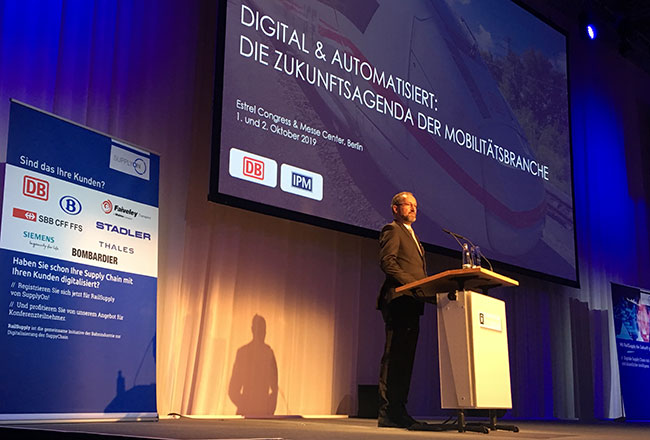
As the 6th Railway Forum impressively demonstrated, digitization and automation are the predominant topics in the railway industry. And this is true at all levels: From infrastructure technology and supplier management to the customer experience, everything is to be digitized and automated in the future. Under the patronage of Deutsche Bahn, around 1,400 experts from the railway industry met in Berlin at the beginning of October to discuss the current challenges of the future and their possible solutions.
According to the general consensus, the railways will play an increasingly important role in the future to meet the growing need for mobility. This is not only against the background of current social developments – catchword: Fridays for future. In metropolitan areas in particular, the increasing need for mobility can only be met by expanding the rail network, coupled with intelligent concepts for the last mile. This expansion in turn requires a high degree of professionalization and digitization in order to significantly increase the punctuality and reliability of rail traffic and thus its attractiveness for the end customer.
Here are the key statements and insights of Railway Forum 2019
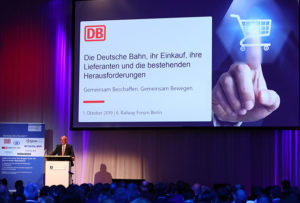
Uwe Günther, CPO, Deutsche Bahn AG and patron of the Railway Forum presented Deutsche Bahn’s expansion strategy and emphasized the importance of a digital management of the digital supply chain – and thus of suppliers. This is particularly crucial for spare parts’ security of supply. Ultimately, the aim is to become more robust, powerful and modern. To achieve this, Deutsche Bahn counts on a powerful procurement as well as on reliable suppliers. Under the motto “World Class Procurement”, the company will digitize and professionalize their procurement processes one by one.
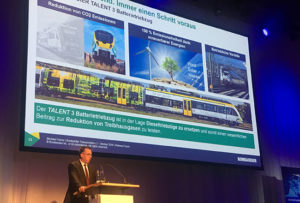
Bombardier Transportation also focuses on digital transformation across the entire value chain: Michael Fohrer, Chairman of the Management Board, called for a joint effort to shape the future and bring new technologies, such as the electric battery train TALENT 3, onto the rails faster.
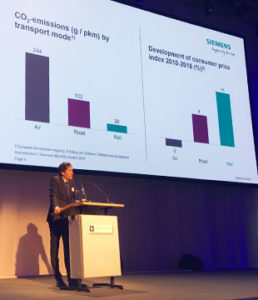
Michael Peter, CEO of Siemens Mobility, focuses on the intelligent combination of rail with autonomous mobility services. With rail’s clear superiority in terms of carbon emissions, it will become indispensable for long-distance travel in the future. Self-driving vehicles will operate on the last mile. Thus, heavily frequented routes in urban areas can be served quite easily by autonomous buses. Siemens Mobility is also working on the autonomous S-Bahn, which is scheduled to go into operation in 2020. The momentum has changed from a tailwind to a storm, and he’s calling on suppliers to join forces.
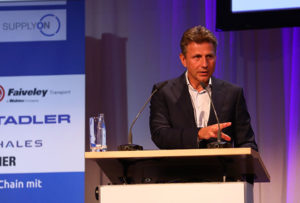
For Alexander Doll, Chief Financial Officer Freight Traffic and Logistics at DB AG, ecological and sustainable procurement is indispensable today. In order to meet the steady boom and rising demand, it needs a robust rail system based on advancing digitization. For him, this is the best way to increase capacity within a confined system.
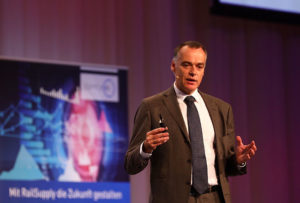
A climate change without a change in traffic pattern is not possible – this is Berthold Huber’s key message. With this statement, Huber, Board Member Passenger Transport of DB AG, underlines the importance of the railway industry. For him, rail is the most environmentally friendly means of transport with the lowest use of land. On top of that, it enables to bundle and accelerate traffic flows.
This is the only way to solve the problems in metropolitan areas, he argues. And to illustrate the superiority of rail, he cites another example: “At peak times, the average speed of a car in Berlin is around eight kilometers per hour (approx. 5 mph).” He is convinced that with the planned increase in traffic frequencies in urban areas as well as in between them, rail will become far more attractive. For example, selected long-distance connections will soon run at a 30-minute interval. He is optimistic about the future, predicting an increase in passenger numbers of five million a year.



